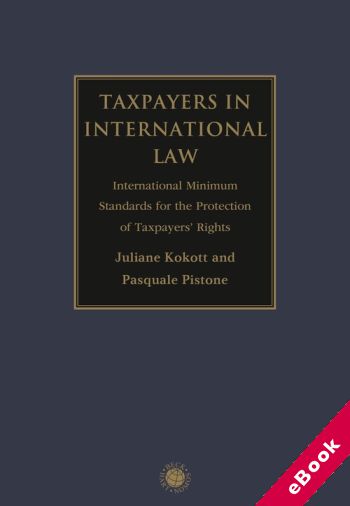
The device(s) you use to access the eBook content must be authorized with an Adobe ID before you download the product otherwise it will fail to register correctly.
For further information see https://www.wildy.com/ebook-formats
Once the order is confirmed an automated e-mail will be sent to you to allow you to download the eBook.
All eBooks are supplied firm sale and cannot be returned. If you believe there is a fault with your eBook then contact us on ebooks@wildy.com and we will help in resolving the issue. This does not affect your statutory rights.
This ground-breaking book brings clarity to the dynamically developing field of international tax law. It empowers individuals and corporate taxpayers to navigate their way around and helps tax authorities take taxpayers' rights into account from the beginning. The book is the result of several years of research conducted with the support of the International Law Association.
. Taxpayers in International Law puts taxpayers' rights on the global international tax agenda as the necessary counterweight and complement to Base Erosion and Profit Shifting (BEPS). Importantly, it pleads for a global minimum standard of legal protection of the fundamental rights of taxpayers and extracts the content of such rights from relevant constitutional principles of many countries around the world.
The book is structured in 3 parts: Part I focusses on the legal sources and on the relations between taxation and international human rights law. Part II identifies general principles and specific taxpayers' rights, groups them into 3 categories (procedural, related to sanctions, and substantive), and analyses the different implications that arise in each of them. Part III features concrete proposals for establishing a global framework for the protection of taxpayers' rights, including guidelines for tax authorities.
The book is a unique instrument for the daily work of practitioners and international tax scholars interested in securing the protection of taxpayer's fundamental rights, as well as for those involved in tax collection worldwide. Taxpayers can refer to the book to find out which rulings and concepts can help them enforce their rights; tax authorities and judges can use the book to verify which rights have to be respected.